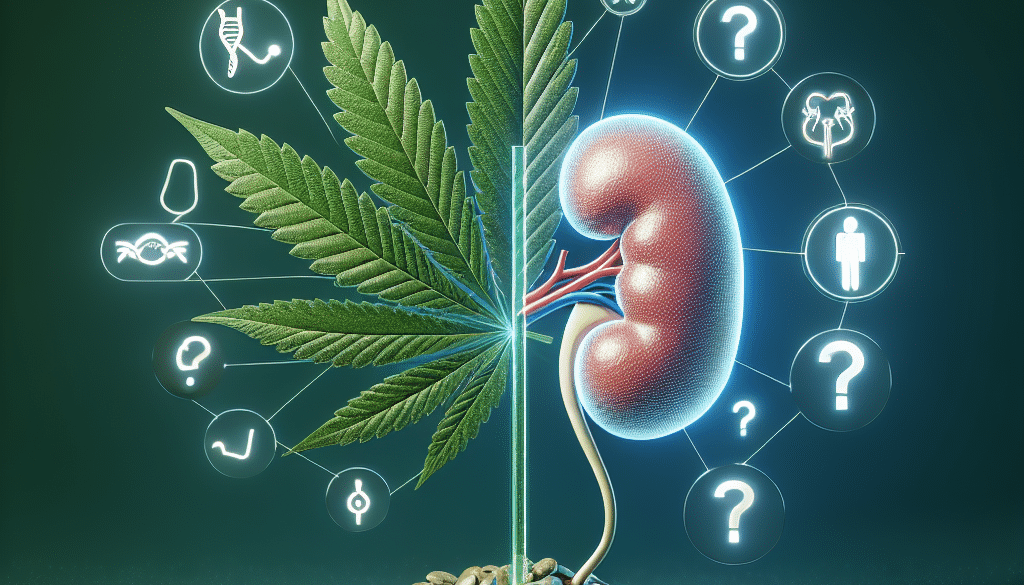Is Hemp Protein Safe For Kidneys?
-
Table of Contents
- Hemp Protein and Kidney Health: A Comprehensive Analysis
- Understanding Hemp Protein
- Nutritional Profile of Hemp Protein
- The Kidneys’ Role in Protein Metabolism
- Concerns About Protein Intake and Kidney Health
- Is Hemp Protein Safe for Kidneys?
- Studies on Plant-Based Proteins and Kidney Health
- Recommended Intake and Considerations
- Case Studies and Anecdotal Evidence
- Conclusion: Hemp Protein as a Kidney-Friendly Option
- Discover ETprotein’s Premium Hemp Protein Products
Hemp Protein and Kidney Health: A Comprehensive Analysis
As the popularity of plant-based diets continues to rise, hemp protein has emerged as a favored supplement among health enthusiasts. Derived from the seeds of the Cannabis sativa plant, hemp protein is lauded for its nutritional profile, which includes essential fatty acids, fiber, and a complete amino acid spectrum. However, with increasing consumption, concerns about its safety, particularly regarding kidney health, have surfaced. This article delves into the question: Is hemp protein safe for kidneys?
Understanding Hemp Protein
Hemp protein is made by grinding the seeds of the hemp plant into a fine powder. It is known for being easily digestible and for providing a plant-based source of protein that is also rich in omega-3 and omega-6 fatty acids. Unlike other parts of the hemp plant, the seeds contain minimal to no tetrahydrocannabinol (THC), the psychoactive component associated with marijuana.
Nutritional Profile of Hemp Protein
- Complete Protein: Contains all nine essential amino acids.
- Fiber: High in dietary fiber, beneficial for digestive health.
- Minerals: Rich in minerals such as magnesium, iron, and zinc.
- Fatty Acids: A good source of omega-3 and omega-6 fatty acids.
The Kidneys’ Role in Protein Metabolism
The kidneys are vital organs that filter waste products from the blood and excrete them through urine. They also play a crucial role in maintaining overall fluid balance, electrolyte levels, and blood pressure. When it comes to protein metabolism, the kidneys help to remove excess nitrogen, a waste product of protein digestion, from the body.
Concerns About Protein Intake and Kidney Health
Excessive protein intake has long been a concern for individuals with pre-existing kidney conditions. The hypothesis is that a high-protein diet could increase the kidneys’ workload, potentially leading to kidney damage over time. However, this concern primarily applies to animal-based proteins and individuals with existing kidney disease.
Is Hemp Protein Safe for Kidneys?
Current research suggests that for individuals with healthy kidneys, plant-based proteins like hemp are generally considered safe and may even offer protective benefits. The key factors to consider include:
- Protein Quality: Hemp protein is a high-quality plant protein with a lower rate of filtration by the kidneys compared to animal proteins.
- Phosphorus Content: Hemp seeds have a lower phosphorus content than other protein sources, which is beneficial for kidney health.
- Amino Acid Profile: The amino acids in hemp protein are less likely to produce large amounts of nitrogen waste.
Studies on Plant-Based Proteins and Kidney Health
Several studies have indicated that plant-based proteins may be more beneficial for kidney health compared to animal-based proteins. For example, a study published in the American Journal of Kidney Diseases found that higher plant protein intake was associated with a lower risk of kidney function decline.
Recommended Intake and Considerations
While hemp protein is generally safe for the kidneys, moderation is key. The recommended dietary allowance (RDA) for protein is 0.8 grams per kilogram of body weight per day for the average adult. Individuals with kidney disease should consult with a healthcare provider to determine the appropriate protein intake for their condition.
Case Studies and Anecdotal Evidence
Case studies on the effects of hemp protein on kidney health are limited. However, anecdotal evidence from consumers who have switched from animal-based to plant-based proteins, including hemp, often report improved health markers and kidney function tests.
Conclusion: Hemp Protein as a Kidney-Friendly Option
In conclusion, hemp protein appears to be a safe and potentially beneficial option for individuals concerned about kidney health. Its plant-based origin, complete amino acid profile, and lower phosphorus content make it a suitable protein supplement for most people. As with any dietary change, it is advisable to consult with a healthcare professional, especially for those with pre-existing health conditions.
Discover ETprotein’s Premium Hemp Protein Products
If you’re looking to incorporate hemp protein into your diet, ETprotein offers a range of high-quality protein products that are organic, non-GMO, and allergen-free. Their hemp protein is characterized by a neutral taste and is an excellent choice for those seeking a plant-based protein source that supports overall health and wellness.
About ETprotein:
ETprotein, a reputable protein and L-(+)-Ergothioneine (EGT) Chinese factory manufacturer and supplier, is renowned for producing, stocking, exporting, and delivering the highest quality organic bulk vegan proteins and L-(+)-Ergothioneine. They include Organic rice protein, clear rice protein, pea protein, clear pea protein, watermelon seed protein, pumpkin seed protein, sunflower seed protein, mung bean protein, peanut protein, and L-(+)-Ergothioneine EGT Pharmaceutical grade, L-(+)-Ergothioneine EGT food grade, L-(+)-Ergothioneine EGT cosmetic grade, L-(+)-Ergothioneine EGT reference grade and L-(+)-Ergothioneine EGT standard. Their offerings, characterized by a neutral taste, non-GMO, allergen-free attributes, with L-(+)-Ergothioneine purity over 98%, 99%, cater to a diverse range of industries. They serve nutraceutical, pharmaceutical, cosmeceutical, veterinary, as well as food and beverage finished product distributors, traders, and manufacturers across Europe, USA, Canada, Australia, Thailand, Japan, Korea, Brazil, and Chile, among others.
ETprotein specialization includes exporting and delivering tailor-made protein powder and finished nutritional supplements. Their extensive product range covers sectors like Food and Beverage, Sports Nutrition, Weight Management, Dietary Supplements, Health and Wellness Products, and Infant Formula, ensuring comprehensive solutions to meet all your protein needs.
As a trusted company by leading global food and beverage brands and Fortune 500 companies, ETprotein reinforces China’s reputation in the global arena. For more information or to sample their products, please contact them and email sales(at)ETprotein.com today.














